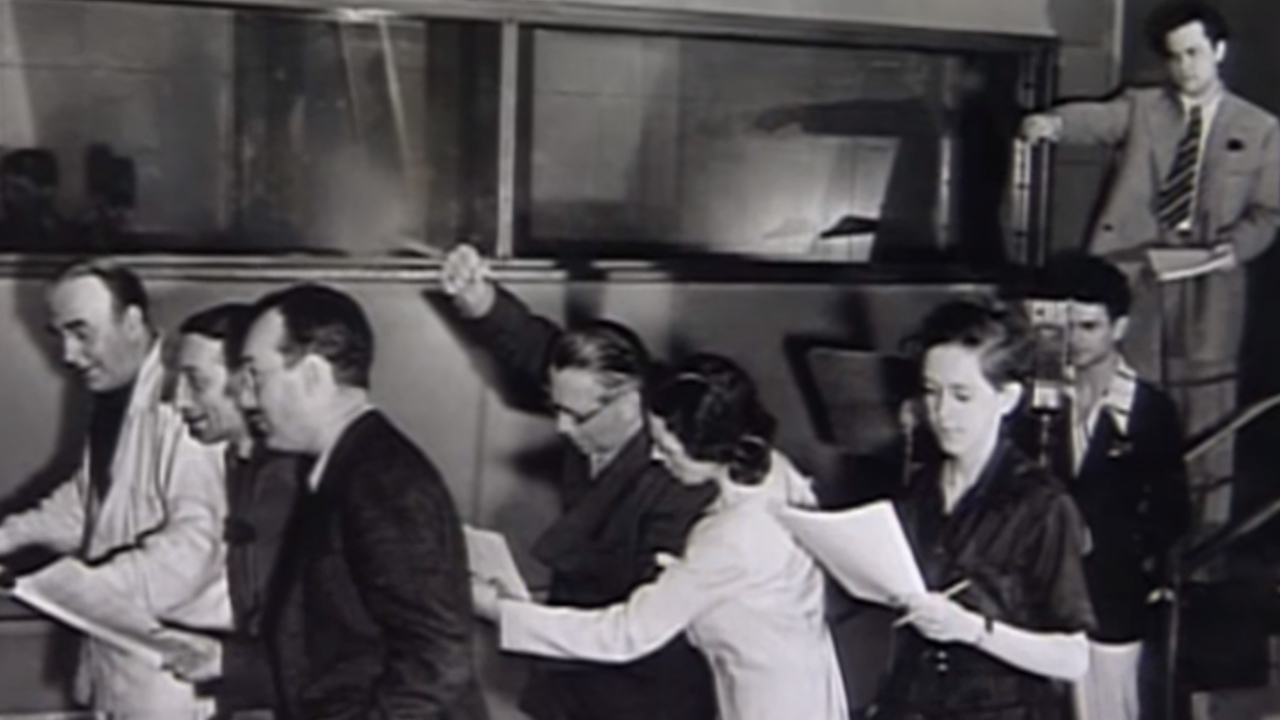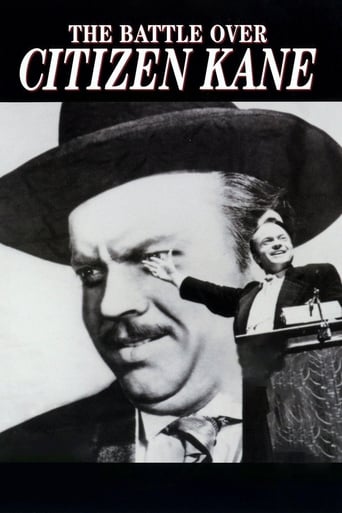




A lot more amusing than I thought it would be.
Blending excellent reporting and strong storytelling, this is a disturbing film truly stranger than fiction
View MoreOne of the worst ways to make a cult movie is to set out to make a cult movie.
View MoreA film of deceptively outspoken contemporary relevance, this is cinema at its most alert, alarming and alive.
View MoreDocumentary about the battle between Orson Welles and William Randolph Hearst over Welles' "Citizen Kane" (1941). Features interviews with Welles' and Hearst's co-workers also as a relatively complete bio of Hearst.This documentary covers two things. One is the creation of "Citizen Kane" and the troubles that Orson Welles went through to get people to see it. This is covered fairly well, and for a fictional version of the story people can watch "RKO 281" which is based on this documentary.The other part is just as interesting, and maybe even more so: the biography of William Randolph Heart. While a towering figure in his day and at the time "Citizen Kane" came out, he has left the public consciousness. Do half of the people in America even know who he is? Probably not. And yet he had a profound effect on journalism and culture. He should be celebrated.
View MoreBoth William Randolph Hearst and his nemesis, Orson Welles, wind up as tragic figures. This is a PBS presentation, an episode in "The American Experience," which in his later years Hearst would have abhorred.It's paid for by taxes, and Hearst is seen coming up with a very modernistic rant about Roosevelt and HIS tax program -- "impudent...and, yes, revolutionary." You can read the same uncrafted expressions of anger on today's newsboards, like Newsvine.Both men were ahead of their time. Hearst, beginning as a benign humanist, turns out to be Scrooge once he gets terribly rich. (His estate at San Simeon is half the size of Rhode Island.) Those baby boomers, once revolutionaries who tried levitating the Pentagon during the Vietnam years, now tearing their remaining hairs out over the national debt, must know exactly the trajectory of Hearst's evolution from iconoclast to skinflint.Welles doesn't fare much better. He's always lunging ahead, against the odds. Sometimes he wins -- that "War of the Worlds" broadcast, which was very good indeed. And sometimes he loses. In his later life he did nothing BUT lose.An obese Welles died at 69. Hearst lived well into his 80s. Rockefeller lived into his 90s. It may be true, as F. Scott Fitzgerald said, "The very rich are different from you and me." Fitzgerald died in his 40s in a modest Los Angeles apartment.
View MoreBattle Over Citizen Kane, The (The American Experience) (1996) *** (out of 4) Season eight of The American Experience featured this documentary about the making of Orson Welles Citizen Kane, which would cause the director to do battle with William Randolph Hearst, the man Kane is based on. There's one huge problem with this film and that's that the film takes way too much time to dig into the actual making of the movie. We spend about an hour getting to know both Welles and Hearst, which is fine but I think too much time is spent here. We learn how Hearst ended up making his fortune (as well as losing) and how Welles became an overnight sensation with The War of the Words radio show. The most interesting aspects happen when we get to the making of the film and how Welles was running out of time to get a movie on the screen as many felt he'd never film anything. When the actual battle starts between the two men it's rather shocking and perhaps sad that neither Welles or Hearst had the decency to try and meet with one another to settle this thing instead of letting it take both of them over. The even sadder thing is that the movie Citizen Kane ended up being a bio of Welles as he ended up just like the character. I've often wondered if Welles got lost in the Kane character or perhaps he was the Kane character and this documentary makes it seem like he was the Kane character.
View More"The Battle Over Citizen Kane" is an informative companion piece to the Welles classic film. For those under-familiar or unfamiliar with the subject, this documentary offers an enlightening introduction. To those already knowledgeable in this subject, "Battle" may be of less interest.There are sharp parallels made between Welles and Hearst, and there is fine archival footage of the two early careers. Both were giants in their respective areas, with notable crossovers between journalism and theater, thanks to stylistic flamboyancies of each. This documentary depicts the influence of power and wealth upon the human personality, and how it can become an obsession for greater acquisition--be it in the form of physical object or artistic success.Both personalities seemed to enjoy courageous controversy and daring defiance--even thriving on it. Both lives were played out like nineteenth century Romantics, vacillating between poles of extreme and excess. Yet, in the end, it is Welles who emerges the victor. His legacy is forever enshrined in the halls of greatness, long after Heart's name has become faint or forgotten. In his '82 BBC interview, Welles appeared sympathetic to a suggestion made to him in '38 that he should retire from filmmaking.I personally don't buy that idea. Regardless of the obvious career "decline" after "Kane," Welles crafted many wonderful, memorable performances as actor, and unique, unforgettable films as director. He was and remains a force to be reckoned with, in the media of radio, stage, and motion pictures.Nor do I fully appreciate such labels as "greatest of all time" slapped upon "Kane." Such titles inadvertently tend to invite comparative--even reactionary--responses, rather than allowing the viewer to freely discover and uncover remarkable layers of quality in the work.I'm sure they'll eventually be better documentaries on this subject; for now, though, "The Battle Over Citizen Kane" fulfills its objective competently.
View More